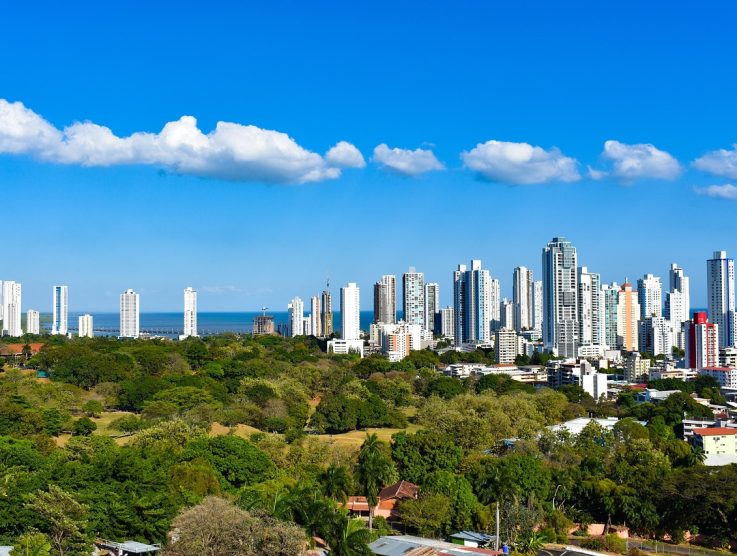Lithuania, the southernmost Baltic state, offers a compelling mix of rich history, rapid economic development, a thriving tech scene, and a relatively low cost of living within the EU. Whether you’re drawn to the baroque charm of Vilnius, the coastal energy of Klaipėda, or the innovation hubs springing up nationwide, finding work in Lithuania requires understanding its unique market dynamics. This guide focuses on navigating teaching opportunities while also outlining pathways to other sectors.
I. Laying the Groundwork: Essential Prerequisites
- Right to Work:
- EU/EEA/Swiss Citizens: Enjoy freedom of movement and work. You need only register your residence with the Lithuanian Migration Department (
Migracijos departamentas) if staying longer than 3 months. - Non-EU/EEA Citizens: Typically require a work permit and residence permit. The process usually starts with a job offer from a Lithuanian employer willing to sponsor you. The employer must prove the position couldn’t be filled by an EU/EEA citizen or Lithuanian resident. Common permit types include:
- Temporary Residence Permit for Employment: Requires a job offer meeting salary thresholds (adjusted annually, check Migration Dept).
- EU Blue Card: For highly qualified professionals with a higher education degree and a job offer meeting a significantly higher salary threshold (1.5x average Lithuanian salary).
- National Visa (D): For seasonal work or specific short-term employment.
- Resource: Lithuanian Migration Department: https://migracija.lrv.lt/en/
- EU/EEA/Swiss Citizens: Enjoy freedom of movement and work. You need only register your residence with the Lithuanian Migration Department (
- Language Proficiency:
- Lithuanian (Lietuvių kalba): Essential for most jobs outside specific international niches (tech, certain multinationals, some tourism roles). Fluency is absolutely mandatory for teaching in state schools and most public-facing or local business roles. Expect B2/C1 level requirements for professional positions.
- Russian: Historically widespread, still useful, especially in certain regions and older demographics, but not a substitute for Lithuanian in the formal job market or integration. Knowledge can be a bonus in customer service or specific industries.
- English: Widely spoken in the tech sector, international companies, tourism, and by younger generations. Proficiency is often a minimum requirement for international roles and highly valued overall.
- Recognition of Qualifications (Nostrifikacija):
- If your profession is regulated in Lithuania (e.g., doctors, nurses, pharmacists, architects, engineers, lawyers, teachers, some trades), your foreign qualifications must be recognized by the relevant Lithuanian authority before you can work in that profession.
- The Centre for Quality Assessment in Higher Education (SKVC – Studijų kokybės vertinimo centras) handles recognition of higher education qualifications for regulated and non-regulated professions. The process involves submitting detailed documentation (diplomas, transcripts, course descriptions) for evaluation.
- Resource: SKVC: https://www.skvc.lt/default/en/home (Check their database for regulated professions)
- Personal Code (Asmens kodas):
- This 11-digit number is essential for signing employment contracts, paying taxes, accessing healthcare, opening a bank account, and many other administrative tasks. You’ll obtain it upon registering your residence.
II. The Heart of the Matter: Finding Teaching Jobs in Lithuania
Teaching is a regulated profession with specific requirements, especially within the state system.
- Requirements for State Schools:
- Qualification: A recognized higher education teaching qualification relevant to the level and subject you wish to teach. Lithuania distinguishes between:
- Pedagogues: Qualified teachers (typically holding a Master’s degree integrating subject knowledge and pedagogy).
- Subject Specialists: Individuals with a relevant subject Master’s degree plus completed pedagogical studies (usually a separate program).
- Lithuanian Proficiency: Mandatory. Teaching, communication with students/parents/colleagues, and administration require fluent Lithuanian (C1 level often expected).
- Recognition (Nostrifikacija): Your teaching qualification must be recognized by the SKVC.
- Good Reputation Certificate: May be required.
- Health Certificate: Often needed.
- Qualification: A recognized higher education teaching qualification relevant to the level and subject you wish to teach. Lithuania distinguishes between:
- Pathways for Foreign Teachers:
- State/Public Schools: Challenging for non-Lithuanian speakers due to the language requirement. Requires full nostrification and high-level Lithuanian. Demand exists for specific subjects (see below).
- International Schools: The primary route for English-speaking teachers. Located mainly in Vilnius and Kaunas (e.g., Vilnius International School, American International School of Vilnius, Kaunas International School). They offer curricula like IB, British, or American.
- Requirements: Recognized teaching qualification (often Bachelor’s minimum, Master’s preferred), relevant experience, teaching license from home country. IB experience highly valued. Lithuanian not required for classroom teaching but helpful for life. Visa sponsorship usually provided.
- Private Language Schools: Numerous in larger cities, teaching English, German, French, etc., to children and adults.
- Requirements: Bachelor’s degree (any field often acceptable), recognized TEFL/CELTA certificate (120+ hours). Native or near-native English proficiency essential. Experience preferred. Lithuanian not usually required for teaching.
- Universities: May hire international lecturers for specific subjects taught in English, particularly at Master’s level or in international programs. Requires a PhD and strong academic profile. Lithuanian requirements vary.
- In-Demand Teaching Areas:
- STEM Teachers: Especially Physics, Mathematics, Chemistry, IT (significant shortage in state schools).
- Foreign Language Teachers: English is always in demand. German, French also sought after.
- Special Needs Education: Growing need for specialists.
- Early Childhood Education: Qualified educators.
- Where to Find Teaching Vacancies:
- State Schools: Check municipality (
savivaldybė) websites (e.g., Vilnius City Municipality, Kaunas City Municipality) under education/career sections. Also, the national education portal Švietimo aprūpinimo centras (ŠAC): https://www.sac.lt/ (has a vacancy section). - International Schools: Check school websites directly. Use international recruitment agencies (Search Associates, Schrole, TES). Look on TES: https://www.tes.com/jobs.
- Private Language Schools: Search company websites (e.g., British Council Lithuania, International House, various local chains). Check general job boards like CV-Online, CV Market, CVbankas (search “anglų kalbos mokytojas”).
- Universities: Check individual university HR/career pages (e.g., Vilnius University, Kaunas University of Technology, Vytautas Magnus University).
- State Schools: Check municipality (
III. Finding Other Jobs: Key Sectors & Strategies
Lithuania’s economy is dynamic, with several strong sectors:
- Information & Communication Technology (ICT): Lithuania’s powerhouse. Vilnius (“Baltic Silicon Valley”) is a major fintech hub (2nd in EU by number of licensed fintech companies). Demand for software developers (Java, .NET, Python, JavaScript), DevOps engineers, data scientists, cybersecurity experts, QA specialists, and project managers. English is often the working language.
- Shared Service Centers (SSCs) & Business Process Outsourcing (BPO): Major growth sector. Vilnius, Kaunas, Klaipėda host centers for international companies handling finance, accounting, HR, IT support, customer service. Requires strong English; other languages (Scandinavian, German, French) are a big plus.
- Manufacturing & Engineering: Strong traditions in laser technologies, biotechnology, metalworking, furniture, food processing. Needs engineers (mechanical, electrical, production), skilled technicians, production managers.
- Logistics & Transport: Leveraging geographic position and Klaipėda port. Roles in supply chain management, trucking, port operations, warehousing.
- Life Sciences: Growing biotechnology and pharmaceutical sector.
- Tourism & Hospitality: Significant in Vilnius, Kaunas, Trakai, Curonian Spit (Neringa), coastal resorts. Seasonal peaks. Roles in hotels, restaurants, tour operators, museums. Lithuanian language important for customer-facing roles.
- Finance: Traditional banking alongside booming fintech.
Job Search Strategies & Resources:
- Online Job Boards (Darbo skelbimai):
- CV-Online: One of the largest and most popular. https://www.cvonline.lt/en (English interface available).
- CV Market: Major competitor to CV-Online. https://www.cvmarket.lt/
- CVbankas: Another significant player. https://www.cvbankas.lt/
- LinkedIn: Increasingly important, especially for tech, SSC/BPO, and managerial roles. Set your location to Lithuania.
- Darbo Birža (National Job Bank): Run by the Lithuanian Labour Exchange. Lists public sector jobs and many private vacancies. https://uzt.lt/ (Requires Lithuanian navigation mostly).
- Careerjet.lt / Indeed.lt: Aggregators pulling from multiple sites.
- Sector-Specific Sites: e.g., CareersInLithuania.com (focuses on attracting foreign talent), TechLithuania.com (tech jobs).
- Recruitment Agencies (Personalo atranka):
- Widely used, especially for specialized roles, SSC/BPO, and management positions. Register your CV.
- Examples: Alliance Recruitment, Manpower, Adams Recruitment, Amston, Not Perfect, Baltic Assist (BPO focus), IT Recruitment Lithuania (tech focus).
- Company Career Pages:
- Identify target employers (e.g., major banks (SEB, Swedbank), large SSCs (Western Union, Nasdaq, Danske Bank, Thermo Fisher Scientific), tech companies (Vinted, Kilo Health, Tesonet, NFQ), manufacturers) and check their websites directly.
- Networking:
- Crucial, especially for senior roles or breaking into certain sectors.
- Attend industry meetups, conferences (e.g., TechChill, FinTech Inn), and professional association events.
- Utilize LinkedIn connections. Join relevant groups (e.g., expat groups on Facebook: “Expats in Vilnius”, “Expats in Kaunas”).
- Informational interviews can be valuable.
IV. The Application Process: CV & Interview
- The Lithuanian CV (Gyvenimo aprašymas):
- Typically concise (1-2 pages), chronological (reverse order).
- Photo: Common and generally expected.
- Personal Details: Name, address, phone, email. Date of birth and marital status are often included but not mandatory. Nationality is common.
- Personal Statement/Objective: A brief summary (3-5 lines) at the top.
- Work Experience: Company, dates, job title, detailed bullet points of responsibilities and achievements (quantify!).
- Education: Institution, dates, degree, major.
- Skills: Languages (with proficiency level), IT skills, driving license, etc.
- References: “Available upon request” is standard.
- Cover Letter (Motivacinis laiškas):
- Essential. Tailor meticulously for each application.
- Explain your interest in the specific role and company.
- Highlight how your skills and experience match the job requirements.
- Keep it professional and concise (1 page).
- Interviews:
- Can range from one to several rounds (HR screening, technical interview, manager interview, team interview).
- Be punctual (highly valued).
- Dress smartly (business casual or formal).
- Prepare for competency-based questions and technical questions relevant to the role.
- Research the company thoroughly.
- Have questions ready for the interviewer.
- Cultural Note: Lithuanians can be initially reserved but value directness, honesty, and competence. Show enthusiasm and confidence without excessive boasting.
V. Important Considerations
- Salary Expectations: Salaries are lower than Western Europe but rising, especially in tech and SSCs. Cost of living (especially outside Vilnius) is relatively low. Research averages for your role/experience on job boards or sites like https://www.payscale.com/research/LT/Country=Lithuania/Salary. Minimum wage is set annually.
- Work Culture: Generally hierarchical compared to Nordic countries but less so than some other regions. Punctuality is crucial. Building trust takes time. Work-life balance is improving but can vary by sector (tech/SSCs often better than traditional industries).
- Cost of Living: Vilnius is the most expensive, followed by Kaunas and Klaipėda. Renting is the biggest cost. Food, transport, and utilities are relatively affordable. Use Numbeo for comparisons.
- Learning Lithuanian: While possible to live in expat bubbles (especially in tech), learning Lithuanian is key to deeper integration, accessing the wider job market (especially outside Vilnius/Kaunas), and daily life. It’s a challenging but rewarding language.
Conclusion: Embracing the Lithuanian Opportunity
Finding work in Lithuania offers a unique blend of EU opportunities, a rapidly modernizing economy, and rich cultural experiences. For teachers, mastering Lithuanian is the gateway to the state system, while international schools and language centers provide accessible entry points for qualified English speakers. In other sectors, Lithuania shines in tech, fintech, and shared services, offering exciting careers, often with English as the working language.
Success requires preparation: navigating visa requirements (for non-EU), initiating qualification recognition early, and committing seriously to learning Lithuanian for long-term integration and broader job prospects. Leverage the dominant local job boards (CV-Online, CV Market, CVbankas), utilize LinkedIn, consider recruitment agencies, and actively network.
With its welcoming people, growing economy, and strategic location, Lithuania presents a compelling destination for career growth. By understanding the landscape and approaching your search strategically, you can successfully find your place and thrive in this vibrant Baltic nation. Sėkmės! (Good luck!)














